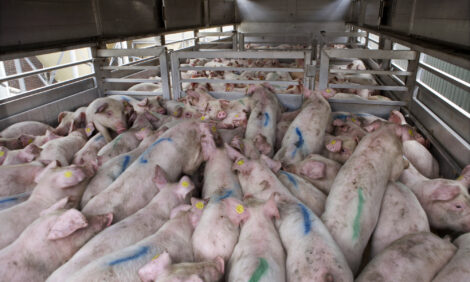



Flexibility, Fairness: Bywords for CAP Reform
EU – Common Agricultural Policy (CAP) changes must distribute funds more fairly and offer flexibility on ‘Greening’ measures, concluded Members of the European Parliament (MEPs) at a meeting of the Agricultural Committee on Wednesday.
Reform ambitions centre around maintaining food security within the European Union (EU) in a sustainable manner. Committee chairman Paolo De Castro has acknowledged that perennial problems still require tackling which is why no further budget cuts are feasible.
“The Agriculture Committee has said today how the new CAP should look. It should be more efficient, greener and able to respond to the enormous challenges ahead of us.“
“Such ambitious goals entail higher costs. So any further cuts to the CAP budget are simply inacceptable, added Mr De Castro.
Active farmers have been singled out for payments by MEPs meaning that only businesses relying on farming as a significant contributor of income are to receive direct payments. Groups such as airports and sports clubs have been listed for member states to review.
Differences in funding levels that member states receive will be minimised by 2019, MEPs have added. New rules will not permit any farmer to receive less direct payments than 65 per cent of the EU average which is hoped will solve issues involving 300 euros/hectare difference in funding between farmers of different member states.
Deviations of 20 per cent will be allowed and efforts will be made to avoid farm income being affected by sudden drops in subsidy.
Large farms accounting for €200,000 euros of direct payment and above look likely to be affected by payment reductions. The Agricultural Committee approved of Commission plans to cap direct payments at €300,000 to any one farm and reduce payments between €250,000 and €300,000 by 70 per cent, and payments between €200,000 and €250,000 by 40% and payments to farms receiving between €150,000 and €200,000 by 20 per cent.
Greater reductions for farms receiving €300,000 instead of capping were rejected by the Agricultural Commission. MEPs approved Commission proposals that advocated the exclusion of cooperatives and other groups of farmers who distribute payments received to their members (AM770) and ensure that capped money remains in the region where it was capped and is used for rural development programmes.
Greater flexibility in the compliance legislation for mandatory Greening measures was vital, said MEPs. The three measures of ‘crop diversification’ maintaining permanent pasture and grassland and ‘ecologically focused areas’ will take 30 per cent of the budget.
Exceptions to the greening rules will be allowed on farms of certain sizes. Cropping control exemptions would be allowed on farms will under 10ha of arable land and a relaxing of the rules was approved by the Committee on farms with 10-30ha of arable land.
Risk management tools, MEPs have stated, should be funded by the rural development budget. Financial contributions to mutual funds and insurance policies against the risk of sever income drop were agreed upon by the Committee as suitable stabilisation methods.
Aware of the potential problems that farmer cartels would cause, the Agricultural Commission agreed that producer viability was important and farmer bargaining power should be encouraged and allowed to strengthen.
The Agricultural Committee said that crisis management tools that helped producers against market volatility are important including withdrawing produce form the market as a last resort.
"The idea that farmers should band together must not translate into cartels but it should allow them to break free from economic dependence and guarantee them a decent standard of living,“ said Michel Dantin,rapporteur for the Common markets regulation organisation.
Establishing strong producer organisations for all sectors, with much greater freedom of action than originally proposed by the Commission, is an appropriate way to achieve that aim.“
Approval of the Agricultural Committee’s position must be met with approval from the Parliament before further discussions with member states. The plenary vote will take place at Strasbourg in March.







